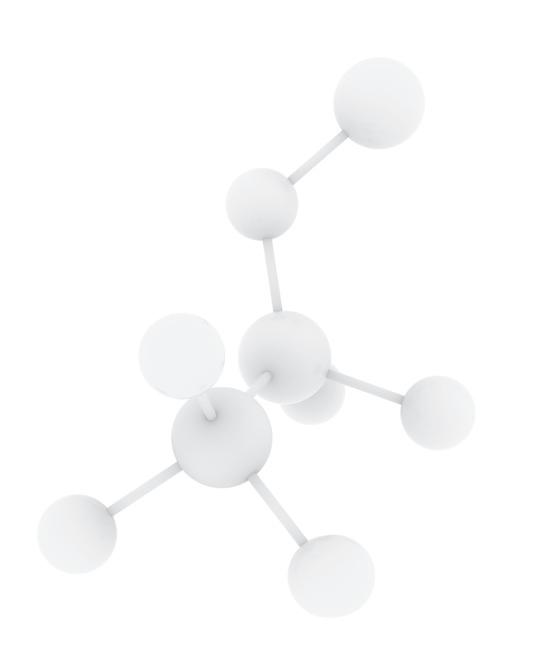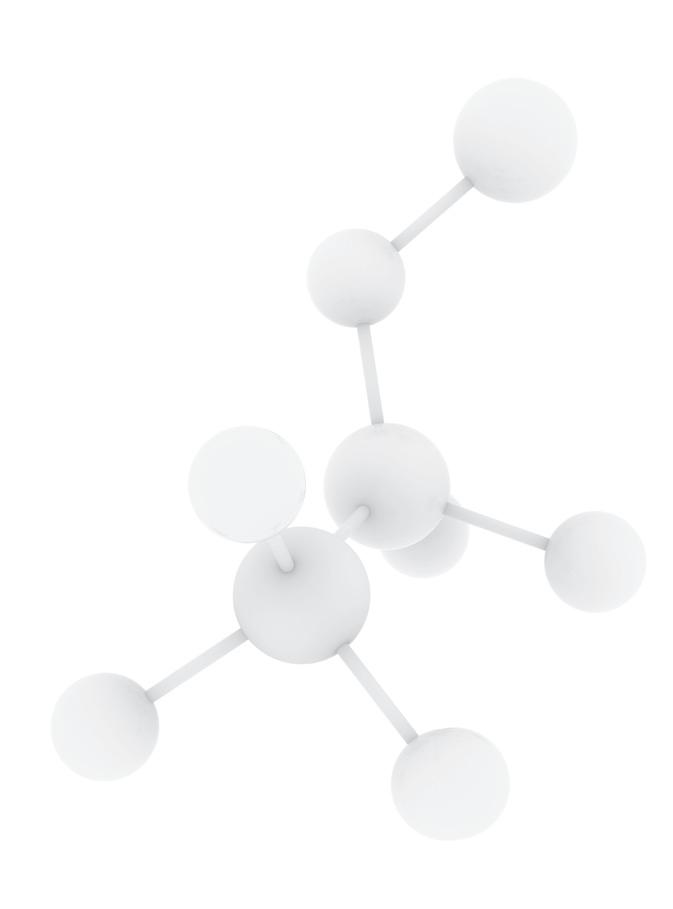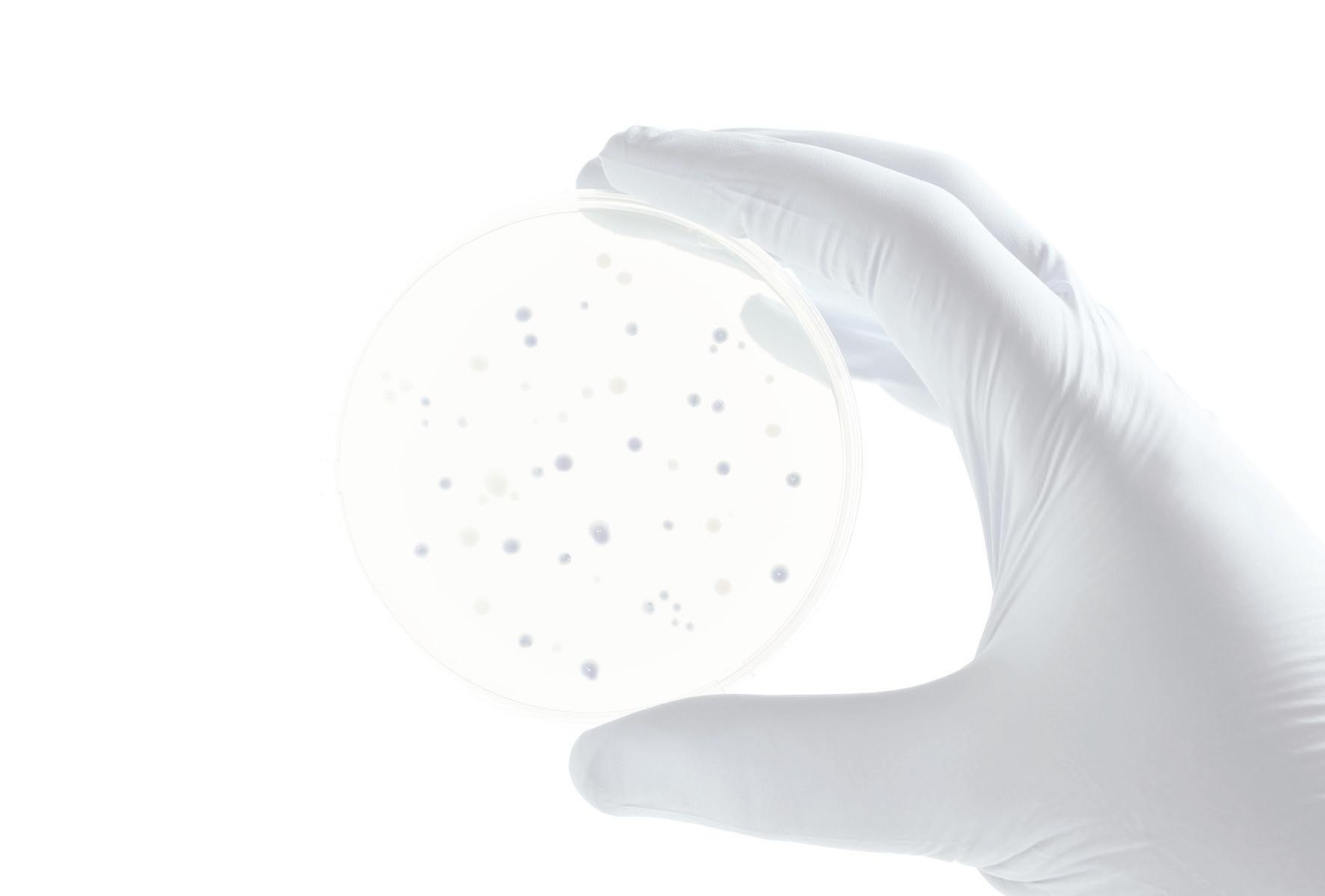
10 minute read
TRAINING THE NEXT GENERATION
Our faculty are passionate about educating and mentoring the next generation of leaders and building a pipeline of diverse new scientists, health economists, clinical researchers and regulatory affairs specialists. These new professionals will in turn bring innovation and new insights to their roles in industry, government, healthcare, higher education and research institutions.
Marquerita Algorri
Advertisement
Marquerita (Rita) Algorri earned her PhD in clinical and experimental therapeutics and MS in regulatory science at the USC Mann School. She served as a graduate research assistant in the laboratory of Associate Dean for Research Affairs Annie Wong-Beringer, where she focused on elucidating the host immune response to Staphylococcus aureus during invasive bloodstream infections. During her tenure at the school, she co-founded and later served as president of Graduate Women in Science. Algorri is now manager of global regulatory affairs (CMC) at Amgen.
Hugo Avila
While pursuing his PhD, Hugo Avila worked full time in the research laboratory of J. Andrew MacKay, associate professor in the Department of Pharmacology and Pharmaceutical Sciences, where he focused on using elastin-like polypeptides to enhance drug delivery to therapeutic targets. Avila attributes his academic success to the support of his family, who provided care for his two children while he worked on the research. That success included an Eli Lilly internship in San Diego that led to his current position at Lilly’s Indianapolis headquarters as an adviser in genetic medicine, working on drug-target development and high-throughput screenings of novel molecules.
Timothy Bensman
484 RESEARCH TRAINEES
Since January 2018, Tim Bensman has been a clinical pharmacology reviewer for the Division of Infectious Disease Pharmacology in the Office of Clinical Pharmacology at the FDA. He earned his PharmD and PhD in clinical and experimental therapeutics and completed a postdoctoral research fellowship in systems pharmacology and pharmacometrics at USC. He has authored numerous journal articles and a book chapter on pharmacokinetics and infectious disease. While a PharmD/PhD student in the laboratory of Paul Beringer, he garnered a two-year fellowship from the NIH for a project on cystic fibrosis.
Melanie Galano
Melanie Galano earned her PhD in molecular pharmacology and toxicology and an MS in regulatory science at USC, where her research included a focus on lipid metabolism and endocrinology. She was the lead author of articles published in the International Journal of Molecular Sciences, Endocrinology and Human Genomics about the role of steroidogenic acute regulatory protein and sterol carrier protein 2 in the transport of cholesterol and other lipids. Galano received the 2021–2022 Charles and Charlotte Krown Fellowship, the top honor awarded to graduate students at the USC Mann School. Her co-curricular activities included joining the USC student chapter of the American Association of Pharmaceutical Scientists and serving as vice chair of the student committee for Diversity, Equity and Inclusion. She was also a founding board member of Parmasya, the school’s Filipino cultural-affinity group. She is now a research scientist at Kite Pharma, a Gilead company.
Joshua Silva
Joshua Silva earned his PhD in clinical and experimental therapeutics and MS in management of drug development from the Mann School. He is manager of medical writing at Pfizer. While working in the laboratory of Daryl Davies studying alcohol use disorders, he co-authored a piece on hangover remedies that was picked up by numerous media, including CNN, PBS NewsHour, Salon and Business Insider. He completed a predoctoral fellowship in pharmaceutical sciences from the American Foundation for Pharmaceutical Education in 2019 and was the recipient of the 2021 USC PhD Achievement Award. While a student, he served as scientific coordinator for the USC Science, Technology and Research (STAR) program to promote diversity in the sciences by mentoring underrepresented high school youth.
Casandra Walker
After earning her PhD in molecular pharmacology and toxicology and MS in regulatory science at USC while working in Martine Culty’s laboratory, Casandra Walker joined Enzyvant as a regulatory affairs specialist in 2022. Her primary research interest is eradicating sickle cell disease—which, despite being considered rare, affects many African Americans and Latinos, including many of her family members and friends. She has also studied patterns of prostate cancer progression and treatment, another research endeavor she has been passionate about since her maternal grandfather died from prostate cancer. Walker founded and serves as CEO of Curls and Careers, a nonprofit to help students of color advance in their education and careers. While at USC, she also headed the Black Pharmacy Society and served on the school’s Diversity Committee.
21.5% UNDERREPRESENTED MINORITY PHD CANDIDATES, 2022–2023

100%
OF HIGH SCHOOL STUDENTS (92% MINORITY) HAVE GONE ON TO COLLEGE AFTER COMPLETING THE MANN SCHOOL-LED SCIENCE, TECHNOLOGY AND RESEARCH (STAR) PROGRAM, WITH 98% ATTENDING TOP-TIER RESEARCH UNIVERSITIES
Scholarly Project
All students in the school’s PharmD program are required to engage in scholarship, individually or as part of a team, by the end of their third year. By learning to apply the process of scientific inquiry—from formulating a research question through data collection, analysis and presentation of results—students not only gain experience that will enhance their future research endeavors, but also learn to become innovative problem-solvers. Each student completes at least 200 hours of fieldwork for the project, which many have called a highlight of their time in the degree program. Findings are presented to a panel of judges that includes faculty members and fourthyear pharmacy students.
Future STARs
The USC Science Technology and Research (STAR) program, based at the Mann School for more than three decades, brings together USC scientists with students at nearby Francisco Bravo Medical Magnet High School. STAR students learn about science and math by conducting research that matters with USC experts. More than 600 high school students have completed the program, with 100% going on to college, including 98% attending top-tier research universities.
Covering the Full Continuum
Intramural Awards
The school is committed to facilitating our faculty success in achieving research excellence and, toward that end, offers a variety of avenues of intramural research funding support. The diversity of skill sets and expertise among faculty within our four departments makes us uniquely qualified to address research topics from a multidisciplinary perspective. To foster interdepartmental collaboration, the school is committed to funding innovative research projects that cross department lines to address a pressing biomedical and healthcare problem, ultimately leading to improving lives.
The school’s Dean’s Summer PharmD Research Fellowship Program provides learning and networking opportunities for USC PharmD students. The program is aimed at students committed to pursuing either professional or academic research careers across the entire pharmaceutical continuum—including drug discovery, delivery, mechanisms of disease and drug action, clinical and translational studies, data science/bioinformatics, regulatory science, health outcomes, economic analysis and policy development.
Wave of Opportunity
The school’s paid Summer Undergraduate Research Fellowships (SURF) increase learning and networking opportunities for non-USC students primarily from underrepresented minority groups who are committed to pursuing either professional or academic research careers across the entire pharmaceutical continuum. Students develop confidence and independence in conducting and presenting research and communicating scientific concepts under the guidance of faculty and other mentors.
Training New Generations
Through the USC Dornsife College of Letters, Arts and Sciences’ Bridge Undergraduate
Science Program (BUGS) and BUGS Jr. for high school students, aspiring scientists learn to better understand the human body, molecule by molecule. The paid summer research program offers students the opportunity to work under the guidance of Mann School faculty as they gain hands-on experience in a collaborative research environment and contribute to improving the human condition.
Building Research Skills
The Undergraduate Research Associates Program, administered through the USC Office of Undergraduate Programs, provides resources that enable faculty to integrate undergraduates into their scholarly and professional activities. Many Mann School faculty members sponsor undergraduates in this distinctive program, which makes students important junior partners on the research team.
Jump-Starting a PhD
Through the Diversity, Inclusion, Access JumpStart Program, USC invites diverse candidates from outside institutions to apply for 10-week summer research opportunities in various PhD disciplines. This serves as a pathway for underrepresented minority groups to PhD programs by providing academic and financial support as well as professional development opportunities for rising juniors and seniors.
NIH-Funded Pilot and Training Opportunities

» Rising STARS (Scientific Training in Alcohol Research and Other Substances)
USC received a $1.3 million, five-year training grant from the National Institute on Drug Abuse to create a first-of-its-kind program to enhance diversity in the next generation of addiction scientists. This innovative, transdisciplinary program will train undergraduate students from underrepresented minority groups in the fields of alcohol and substance use disorders. The program is led by Daryl Davies, associate dean of undergraduate education at the Mann School. The program will collaborate with neighboring California State University, Los Angeles and Charles R. Drew University of Medicine and Science—which collectively represent one of the largest pools of talented underrepresented minority students in the U.S. Rising STARS scholars will have the opportunity to train in preclinical, human laboratory, clinical, public health and policy approaches at USC under the direction of faculty mentors from a breadth of disciplines. After completing the program, scholars are eligible for guaranteed interviews, select slots of PhD entry and application-fee waivers at USC graduate schools.
» USC Alzheimer’s Disease Resource Center for Minority Aging and Health Economics Research
Aiming to increase the number, diversity and academic success of junior faculty who focus their research on the health and economic well-being of minority elderly populations, the USC Alzheimer’s Disease Resource Center for Minority Aging and Health Economics Research has cultivated 27 early-career scholars since its launch in 2012. The center is funded through a grant from the National Institute on Aging with additional support from the USC Office of the Provost, Price School of Public Policy and Mann School. Dana Goldman serves as co-director.
» USC Center for Advancing Sociodemographic and Economic Study of Alzheimer’s Disease and Related Dementias
An interdisciplinary research center established through a partnership with the Schaeffer Center, the University of Texas at Austin Population Research Center and Stanford Health Policy, the USC Center for Advancing Sociodemographic and Economic Study of Alzheimer’s Disease and Related Dementias (CeASES-ADRD) works to advance innovative social science research in Alzheimer’s disease and related dementias, increase and diversify the number of researchers working in the field, and disseminate findings for impact. Funded through the NIH, this mission is accomplished through network meetings, workshops, pilot project support and the annual Science of ADRD for Social Scientists Program. Dana Goldman serves on the executive committee.
In an unprecedented achievement, five USC Mann School PhD students received American Foundation for Pharmaceutical Education (AFPE) Pre-Doctoral Fellowships in Pharmaceutical Sciences in the same year. USC is the only pharmacy school to garner five such awards in one year, according to AFPE.
» USC Roybal Center for Behavioral Interventions in Aging
By developing and testing interventions based on insights from behavioral science to promote healthy aging, the USC Roybal Center for Behavioral Interventions in Aging aims to strengthen the ability of clinicians to recommend the safest, most effective treatments for patients. The center conducts research that advances healthy aging for older adults who are economically insecure, culturally diverse and underserved by human services organizations. It funds pilot projects proposed by senior and junior researchers from academic and research institutions focused on the consequences of current patterns of practice and the development of interventions that will improve care delivery, quality of care and value to aging adults. Dana Goldman is co-principal investigator.
Select Trainee Publications
Students and residents at the Mann School are encouraged and mentored to publish their work in top academic journals and present their findings at major conferences. Following are a few examples of trainees who have served as lead authors on research publications.
Fatimah Alhurayri, MS Student
Alhurayri, F., E. Porter, R. Douglas-Louis, E. Minejima, J. Bubeck Wardenburg and A. Wong-Beringer. (2021). Increased Risk of Thrombocytopenia and Death in Patients With Bacteremia
Caused by High Alpha ToxinProducing MethicillinResistant Staphylococcus aureus. Toxins, 13: 726.
A. J. Al Omran, PhD Student
Al Omran, A. J., A. S. Shao … D. L. Davies, X. M. Shao and J. Liang. (2022). Social Isolation Induces Neuroin- flammation and Microglia Overactivation, While Dihydromyricetin Prevents and Improves Them. Journal of Neuroinflammation, 19 (1): 2.
Hugo Avila, PhD Student
Avila, H. … and J. A. MacKay. (2022). HydraElastin-Like Polypeptides Increase Rapamycin Potency When Targeting Cell Surface GRP78. Biomacromolecules, 23 (8): 3116-29.
Brandon Ebright, PhD Student
Ebright, B., I. Assante, S. Louie et al. (2022). Eicosanoid Lipidome Activation in Post-Mortem Brain Tissues of Individuals With APOE4 and Alzheimer’s Dementia. Alzheimer’s Research Therapy, 14 (1): 152.
Melanie Galano, PhD Student
Galano, M., Y. Li, L. Li, C. Sottas and V. Papadopoulos. (2021).
Role of Constitutive STAR in Leydig Cells. International Journal of Molecular Sciences, 22 (4).
Galano, M., S. Ezzat and V. Papadopoulos. (2022). SCP2 Variant Is Associated With Alterations in Lipid Metabolism, Brainstem Neurodegeneration and Testicular Defects. Human Genomics, 16: 32.
Eunjin Hong, PhD Student
Hong, E., L. M. Almond, P. S. Chung, A. P. Rao and P. M. Beringer. (2022). Physiologically Based PharmacolineticLed Guidance for Patients With Cystic Fibrosis Taking Elexacaftor-TezacaftorIvacaftor With NirmatrelvirRitonavir for the Treatment of COVID-19. Clinical Pharmacology and Therapeutics, 111: 1324-33.
Diana Jo, PharmD, PGY2 Infectious Diseases Resident Jo, D., A. Sophonsri, P. Ny, M. Lou, P. Nieberg, K. Shriner and A. Wong-Beringer.
(2022). Unvaccinated Nonelderly Adult Population Hospitalized for COVID-19: Risk for Severe Disease and Poor Outcomes. Journal of Primary Care Community Health, 13.
Michelle Kalu, PharmD, PhD Student
Kalu, M., K. Tan, R. Algorri, P. Jorth and A. WongBeringer. (2022). In-Human Multiyear Evolution of Carbapenem-Resistant Klebsiella pneumoniae Causing Chronic Colonization and Intermittent Urinary Tract Infections: A Case Study. mSphere, 7 (3): e0019022.
Christian Rabot, PhD Student
Rabot, C., Y. Chen, S. Bijlani, Y. M. Chiang, C. E. Oakley, B. R. Oakley, T. J. Williams and C. C. C. Wang. (2022). Conversion of Polyethylenes Into Fungal Secondary Metabolites. Angewandte Chemie (International ed. in English), e202214609.

Anthony Sophonsri, PharmD, Clinical Translational Research Fellow
Sophonsri, A., D. Le, M. Lou, P. Ny, E. Minejima … and A. Wong-Beringer. (2022). Temporal Dynamics of Host Immune Response Predictive of Disease Severity and Progression in Patients Hospitalized for COVID-19 Pneumonia. Critical Care Explorations, 4 (9): e0760.
Saki Watanabe, PhD Student
Watanabe, S. … D. L. Davies, X. M. Shao, J. Watanabe and J. Liang. (2022). Dihydromyricetin Improves Social IsolationInduced Cognitive Impairments and Astrocytic Changes in Mice. Scientific Reports, 12 (1): 5899.
Degree Programs
Clinical Pharmacy
Doctor of Pharmacy
Graduate Certificate in Advanced Pharmacy Practice
Regulatory and Qualitative Sciences
Doctorate in Regulatory Science
MS in Management of Drug Development
MS in Medical Product Quality
MS in Regulatory Management
MS in Regulatory Science
Graduate Certificate in Clinical Research Design and Management
Graduate Certificate in Food Safety
Graduate Certificate in Medical Product Quality
Graduate Certificate in Patient and Product Safety
Graduate Certificate in Preclinical Drug Development
Graduate Certificate in Regulatory and Clinical Affairs
Pharmaceutical and Health Economics
PhD in Health Economics
MS in Biopharmaceutical Marketing
MS in Healthcare Decision Analysis
MS in Pharmaceutical Economics and Policy
Progressive MS in Biopharmaceutical Marketing

Progressive MS in Healthcare Decision Analysis
Graduate Certificate in Healthcare Decision Analysis
Pharmaceutical and Translational Sciences
PhD Clinical and Experimental Therapeutics
PhD Molecular Pharmacology and Toxicology
PhD Pharmaceutical Sciences

MS in Clinical and Experimental Therapeutics
MS in Molecular Pharmacology and Toxicology
MS in Pharmaceutical Sciences
Undergraduate Programs
BA in Biopharmaceutical Sciences
BS in Biopharmaceutical Sciences
BA in Pharmacology and Drug Development
BS in Pharmacology and Drug Development
Minor in Biopharmaceutical Business
Minor in Foundation in Regulatory Sciences
Minor in Science and Management of Biomedical Therapeutics
Joint Degree Program
MS of Addiction Science








